
Find Help
More Items From Ergsy search
-

Can exercise help prevent gestational diabetes?
Relevance: 100%
-

Gestational Diabetes during pregnancy
Relevance: 79%
-

Gestational diabetes | NHS
Relevance: 79%
-
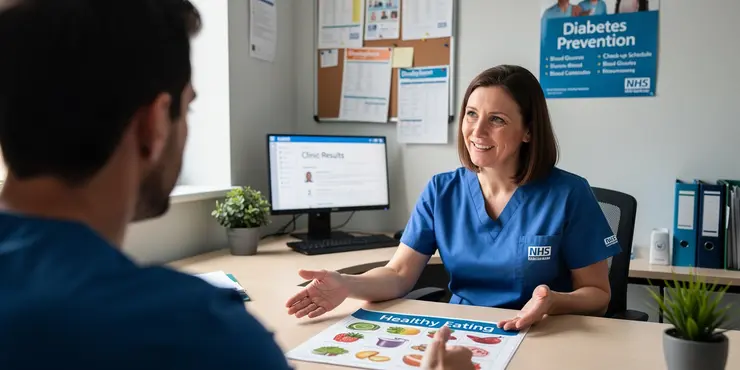
Can Type 2 Diabetes be prevented?
Relevance: 45%
-
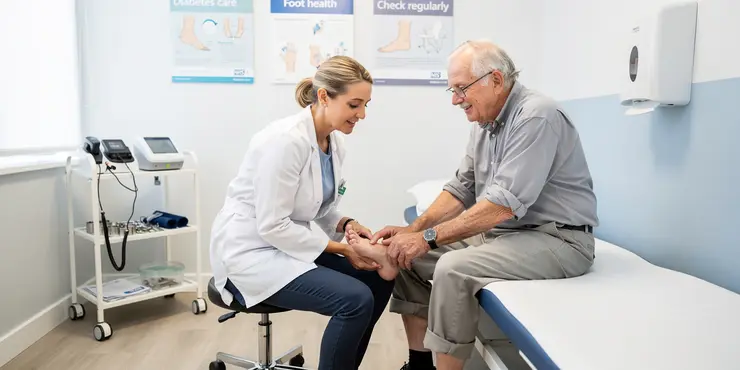
Diabetes Care - Preventing Amputations
Relevance: 44%
-

Pam’s story - The NHS Diabetes Prevention Programme
Relevance: 41%
-

What exercises can I do during pregnancy?
Relevance: 40%
-

Tom's story (NHS Diabetes Prevention Programme)
Relevance: 40%
-

The NHS Diabetes Prevention Programme story
Relevance: 40%
-

NHS Diabetes Prevention Programme; Preventing Type 2 and improving outcomes for people with diabetes
Relevance: 39%
-

Hansa's story - The NHS Diabetes Prevention Programme
Relevance: 38%
-
Are there any clinical trials for preventing type 1 diabetes?
Relevance: 37%
-

Tom's story (NHS Diabetes Prevention Programme)
Relevance: 37%
-

Improving outcomes for people with diabetes
Relevance: 36%
-
Do mixed exercises help in preventing injuries?
Relevance: 35%
-
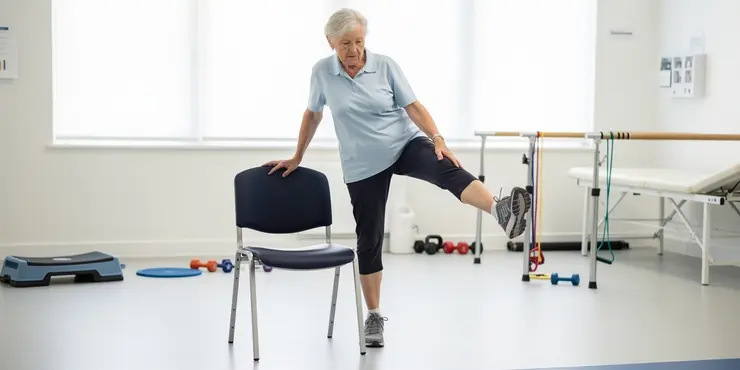
Falls Prevention - strength and balance exercises
Relevance: 34%
-

How does exercise benefit pregnancy?
Relevance: 34%
-
Can mixed exercises prevent workout monotony?
Relevance: 33%
-

What causes Type 2 Diabetes?
Relevance: 33%
-

Is Type 2 Diabetes hereditary?
Relevance: 33%
-

What Is Type 2 Diabetes? | 2 Minute Guide | Diabetes UK
Relevance: 32%
-

Type 1 Diabetes supporting adults to manage Type 1 diabetes
Relevance: 31%
-

How to manage type 2 diabetes
Relevance: 31%
-
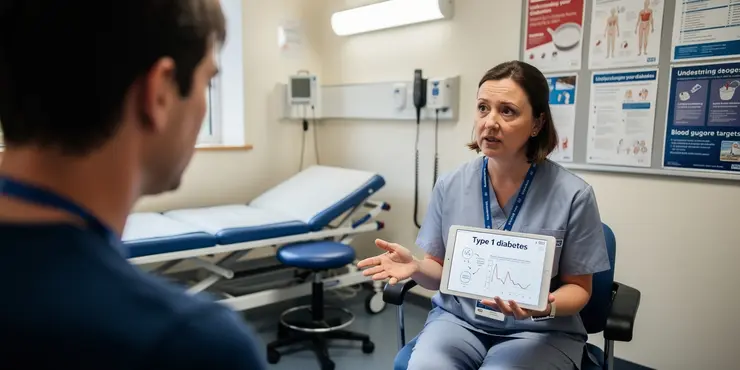
What is type 1 diabetes?
Relevance: 31%
-
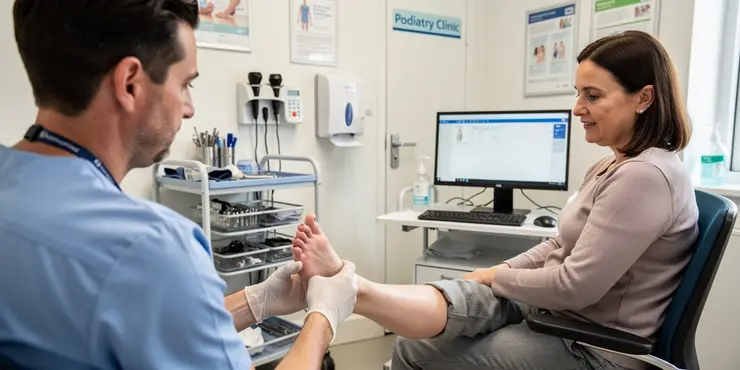
Diabetic Foot Conditions Podiatrist
Relevance: 31%
-

Can Type 2 Diabetes go away?
Relevance: 31%
-
What is type 1 diabetes?
Relevance: 30%
-

How is Type 2 Diabetes treated?
Relevance: 30%
-
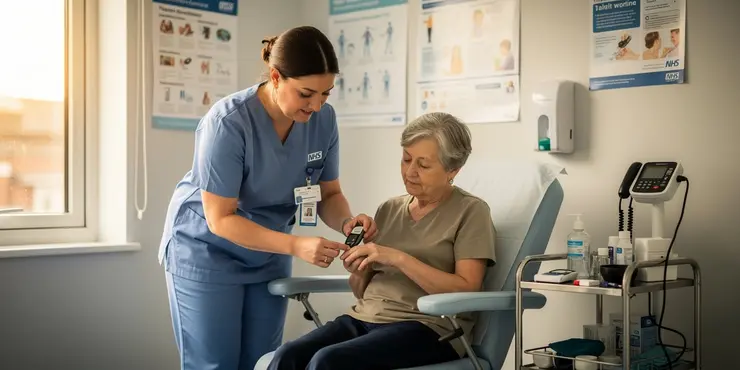
How often should I check my blood glucose levels?
Relevance: 30%
-
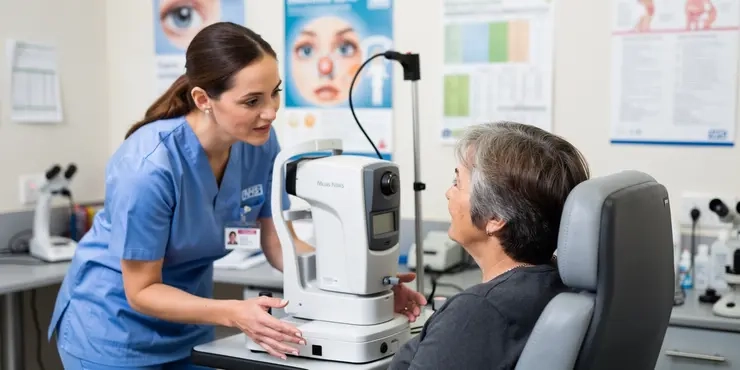
Diabetes Eye Screening
Relevance: 30%
-
What is the difference between type 1 and type 2 diabetes?
Relevance: 29%
-

How is Type 2 Diabetes diagnosed?
Relevance: 29%
-

Sarah and Glinys Managing Diabetes into remission Jan2019
Relevance: 29%
-
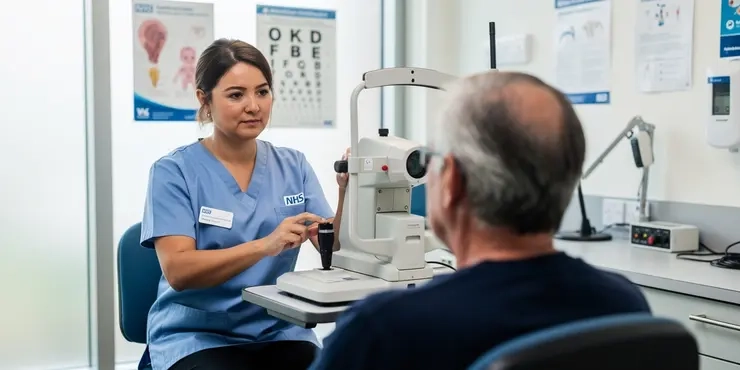
Derbyshire Diabetic Eye Screening - Diabetic Eye Screening
Relevance: 29%
-

Is it possible to prevent a heart attack?
Relevance: 28%
-

Can I do high-impact exercises while pregnant?
Relevance: 28%
-
Is there a genetic predisposition to type 1 diabetes?
Relevance: 28%
-
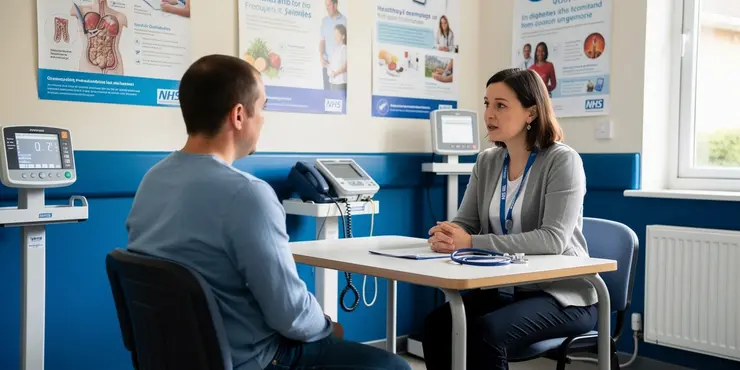
Is Ozempic suitable for type 1 diabetes?
Relevance: 28%
-
What lifestyle changes can lower my child's risk of type 1 diabetes?
Relevance: 28%
-

Can heart failure be prevented?
Relevance: 28%
Introduction to Gestational Diabetes
Gestational diabetes is a condition characterized by high blood sugar levels that develop during pregnancy and typically resolve after childbirth. It can pose health risks to both the mother and baby, including an increased likelihood of developing type 2 diabetes later in life. In the UK, gestational diabetes affects a significant number of pregnancies each year, making prevention strategies a key focus for expecting mothers and healthcare providers.
The Role of Exercise in Prevention
Exercise is widely recognized as a beneficial intervention for maintaining good health, and it plays a crucial role in preventing gestational diabetes. Engaging in regular physical activity helps regulate blood sugar levels by improving insulin sensitivity, which can be particularly advantageous for pregnant women who are at risk of metabolic disorders. The NHS recommends that pregnant women, unless advised otherwise by their healthcare provider, aim for at least 150 minutes of moderate-intensity exercise per week.
Types of Exercise to Consider
Prenatal exercise doesn't have to be strenuous; in fact, moderate activities are often the most beneficial. Walking, swimming, and low-impact aerobic exercises such as cycling on a stationary bike can be excellent choices for expecting mothers. These activities help improve cardiovascular health, manage weight, and maintain muscle tone, all of which contribute to better blood sugar control.
The Science Behind Exercise and Blood Sugar Control
Regular physical activity enhances the body's ability to use insulin more effectively, facilitating glucose uptake into muscle cells and reducing blood sugar levels. During pregnancy, exercise also helps control weight gain, another significant factor in gestational diabetes risk. Research has shown that women who engage in regular exercise during pregnancy are less likely to develop gestational diabetes compared to those who lead a more sedentary lifestyle.
Practical Tips for Safe Exercise During Pregnancy
While exercise is beneficial, pregnant women should approach it with caution and adapt activities to fit their changing bodies. It's important to stay hydrated, avoid overheating, and observe how the body reacts to different activities. Consulting with a healthcare provider before starting a new exercise routine can ensure safety and appropriateness given individual health conditions. Additionally, integrating short, frequent sessions can be more comfortable and sustainable than longer workouts.
Conclusion
In summary, engaging in regular, moderate exercise can be a valuable strategy for reducing the risk of gestational diabetes. For women in the UK and elsewhere, incorporating physical activity into daily routines during pregnancy can promote healthier outcomes for both mother and baby. By focusing on safe and enjoyable exercises, pregnant women can empower themselves with an effective tool for managing their health and potentially preventing gestational diabetes.
What is Gestational Diabetes?
Gestational diabetes happens when a pregnant person has high blood sugar. This means too much sugar in the blood. It usually goes away after the baby is born. It can cause health issues for both the mother and the baby. Mothers with gestational diabetes can have a higher chance of getting type 2 diabetes later. Many pregnant women in the UK experience this, so it's important to know how to prevent it.
Why Exercise Helps
Exercise is good for keeping our bodies healthy. It can also stop gestational diabetes from happening. Exercise helps keep blood sugar levels normal. It does this by making the body use insulin better. Insulin is what helps sugar go from the blood into the muscles. The NHS says pregnant women should try to do about 150 minutes of exercise a week, if their doctor says it's okay.
What Kind of Exercise is Good?
Pregnant women don't need to do hard exercises. Easy exercises can be the best. Walking, swimming, or riding a bike that doesn't move (a stationary bike) are good choices. These exercises help the heart stay strong, manage weight, and keep muscles healthy. They also help control blood sugar.
How Exercise Helps Blood Sugar
When we exercise, our bodies use insulin better. This helps sugar move into muscles and keeps blood sugar low. During pregnancy, exercise can help keep weight gain healthy. Women who exercise during pregnancy have a lower chance of getting gestational diabetes than those who don't exercise much.
Tips for Safe Exercise When Pregnant
Exercise is good, but pregnant women need to be careful. They should drink water, not get too hot, and listen to their bodies. Before starting any new exercise, it's good to talk to a doctor. Short, easy exercises can be better than long, hard ones.
To Finish
In the end, doing regular, easy exercise can help stop gestational diabetes. This is true for women in the UK and everywhere. Exercise during pregnancy helps both the mother and the baby stay healthy. Choosing safe and fun exercises can help pregnant women take care of their health and stop gestational diabetes.
Frequently Asked Questions
What is gestational diabetes?
Gestational diabetes is a type of diabetes that develops during pregnancy and usually disappears after giving birth.
Can exercise help prevent gestational diabetes?
Yes, regular exercise can play a role in preventing gestational diabetes by helping to regulate blood sugar levels.
How does exercise help in preventing gestational diabetes?
Exercise improves insulin sensitivity and glucose metabolism, thereby reducing the risk of gestational diabetes.
What types of exercise are recommended for pregnant women to prevent gestational diabetes?
Moderate activities like walking, swimming, and prenatal yoga are recommended for pregnant women to help prevent gestational diabetes.
How often should pregnant women exercise to prevent gestational diabetes?
Pregnant women should aim for at least 150 minutes of moderate-intensity exercise per week to help prevent gestational diabetes.
Are there any risks of exercising during pregnancy?
While exercise is generally safe during pregnancy, pregnant women should consult their healthcare provider before starting any exercise program.
Can exercise alone prevent gestational diabetes, or is diet important too?
Both exercise and a healthy diet can work together to lower the risk of gestational diabetes more effectively than either alone.
Should women who are at high risk for gestational diabetes engage in exercise?
Yes, women who are at high risk should engage in appropriate exercise, with guidance from their healthcare provider, to help reduce their risk.
Can all pregnant women safely exercise to prevent gestational diabetes?
Most can, but it's important for each woman to consult with her healthcare provider to determine a safe exercise plan tailored to her needs and circumstances.
What should pregnant women avoid when exercising?
Pregnant women should avoid exercises with a high risk of falling, contact sports, and exercising while lying flat on their back after the first trimester.
Is there a specific time during pregnancy when exercise is most beneficial for preventing gestational diabetes?
Starting exercise early in pregnancy and maintaining it throughout is beneficial, but any increase in physical activity, even later, can be helpful.
Can women with gestational diabetes benefit from exercise?
Yes, women with gestational diabetes can also benefit from exercise, which can help manage blood sugar levels.
Can exercise impact the baby's health if the mother has gestational diabetes?
Regular moderate exercise can help control the mother's blood sugar levels, potentially leading to healthier outcomes for the baby.
Can sedentary women start exercising during pregnancy to prevent gestational diabetes?
Yes, but they should start slowly and gradually increase their activity level after consulting with their healthcare provider.
How does exercise compare to medication in preventing gestational diabetes?
Exercise is a natural, non-pharmacological way to lower the risk and can be a complement to medical interventions when necessary.
What role does weight management play in preventing gestational diabetes along with exercise?
Maintaining a healthy weight through a balanced diet and exercise is crucial in reducing the risk of developing gestational diabetes.
Can group exercise classes be beneficial for pregnant women trying to prevent gestational diabetes?
Yes, group classes provide social support and motivation, which can help maintain a consistent exercise routine.
Should intensity of exercise change throughout pregnancy?
Yes, intensity may need to be adjusted based on how the pregnancy progresses, always prioritizing safety and comfort.
Can stress management techniques enhance the effects of exercise in preventing gestational diabetes?
Yes, combining stress management with regular exercise can lead to better overall health and potentially lower gestational diabetes risk.
What signs should pregnant women look for to stop exercising and seek medical advice?
Signs include dizziness, shortness of breath before exercise begins, chest pain, vaginal bleeding, or decreased fetal movement, among others.
What is gestational diabetes?
Gestational diabetes is when a pregnant woman has high sugar levels in her blood. It happens only during pregnancy. The body needs insulin to help use sugar for energy. But in gestational diabetes, the body doesn't use insulin well.
Doctors help by checking blood sugar levels. They might suggest healthy foods and exercise. Some might need medicine too.
If you have trouble reading, you can use:
- Read aloud tools: These apps or devices can read the text to you.
- Simple language guides: Books or websites that explain things in easy words.
- Ask someone: Talk to a helper or a friend who can explain things.
Gestational diabetes happens when a person has diabetes during pregnancy. It usually goes away after the baby is born.
Can exercise stop mothers from getting diabetes when pregnant?
Yes, doing exercise often can help stop gestational diabetes. It helps keep your blood sugar at the right level.
How can exercise stop gestational diabetes?
Exercise can help keep you healthy and strong. It helps your body use sugar better. This can stop you from getting gestational diabetes when you are pregnant. Gestational diabetes means your blood sugar is too high.
Simple ways to exercise:
- Go for a walk.
- Do some stretches.
- Try gentle yoga.
Tips to make exercise easier:
- Ask a friend to join you.
- Listen to music while you move.
- Set small goals, like walking for 10 minutes.
Exercise helps your body use sugar better and can lower the chance of getting diabetes when you are pregnant.
What exercises should pregnant women do to help stop gestational diabetes?
When a woman is going to have a baby, she can do exercises to stay healthy. Some exercises can help stop a sickness called gestational diabetes.
Here are some exercises that are good:
- Walking: Walking is easy and safe. It helps keep the body fit.
- Swimming: Swimming makes the whole body move. It is gentle on the joints.
- Yoga: Yoga helps make the body and mind strong. It also makes muscles stretch.
- Low-impact aerobics: This exercise is fun and keeps the heart healthy.
Remember to ask a doctor before starting any exercise. The doctor will make sure it is safe.
When you are pregnant, it is good to do some exercise. You can try walking, swimming, or doing special yoga for pregnant people. These activities can help you stay healthy and stop a problem called gestational diabetes.
How much should pregnant women exercise to avoid getting gestational diabetes?
Pregnant women should move their bodies 4 to 5 times a week.
This helps stop a type of diabetes when you are pregnant.
Walking, dancing, or swimming are good exercises to do.
Ask a doctor or nurse for more advice.
If you are pregnant, try to do 150 minutes of exercise every week. This helps stop diabetes that can happen when you are having a baby. Do exercises that are not too hard, like walking or swimming.
Is it safe to exercise when you are pregnant?
It is usually safe for pregnant women to exercise. But, before starting to exercise, pregnant women should talk to their doctor.
Can exercise stop pregnant moms from getting diabetes, or is eating well important too?
Doing exercise and eating healthy food can help lower the chance of getting gestational diabetes better when done together than when done alone.
Can women at high risk for gestational diabetes do exercise?
If a woman might get gestational diabetes, can she still exercise?
Gestational diabetes is a type of diabetes some women get during pregnancy.
Exercise can help keep both mom and baby healthy. It is good to move your body.
Here are some ways to exercise:
- Go for a walk
- Go for a swim
- Stretch your body
Talk to your doctor before starting to exercise. They can help you choose safe activities.
Yes, women who have a high risk should do the right kind of exercise. They should talk to their doctor to find out what exercises are best for them. This can help them stay healthy.
Can all pregnant women exercise safely to stop gestational diabetes?
It is important for pregnant women to talk to their doctor before starting any exercise.
Some exercise can help keep sugar levels normal, which might stop gestational diabetes.
Different women have different needs, so it is good to get advice from a doctor.
Tools like fitness apps or videos can help with simple exercises.
Most women can do exercises, but it is important for each woman to talk to her doctor. The doctor can help make a safe plan for her. This plan will be just right for what she needs.
Here are some tips to help:
- Use simple words and short sentences to make reading easier.
- Focus on one idea at a time.
- Ask your doctor any questions you have. They are there to help you.
- Use pictures or drawings to understand better.
- Try apps or tools that read text out loud.
- Take your time and go at your own pace.
What should pregnant women not do when exercising?
If you are pregnant, be careful when you exercise. Here are some things to avoid:
- No lifting heavy things.
- Do not lie flat on your back for a long time.
- Avoid bouncing or jerky movements.
- Stay away from hot places, like very warm yoga rooms.
You can use tools to help, like:
- Ask a friend to exercise with you.
- Use a soft mat for support.
- Listen to your body and take breaks.
If unsure, ask your doctor for advice.
If you are pregnant, here are some things to avoid:
- Exercises where you might fall down.
- Sports where you bump into people.
- Exercises while lying on your back after the first 3 months.
To help understand this, you can:
- Use pictures or videos of safe exercises.
- Ask a friend or family member to explain it to you.
- Talk to your doctor for advice on safe exercises.
When is the best time for pregnant women to exercise to help stop gestational diabetes?
It is good for pregnant women to move and exercise when they can. Exercise can help stop a problem called gestational diabetes.
Move safely when a doctor says it is okay.
Using apps or asking a friend to help can make it easier to exercise.
It is good to start exercising early in pregnancy and keep going. But, it is still helpful if you start exercising later on.
Can exercise help pregnant women with diabetes?
Exercise can help pregnant women who have diabetes. It can make them feel better and stay healthy.
Even a little bit of moving around, like walking, can be good. It helps control sugar levels in their blood.
Doctors can help. They will say what exercises are safe to do.
Tools to help:
- A fitness tracker can show how much you move.
- Join a group class for pregnant women to exercise together.
Yes, women who have gestational diabetes can help control their blood sugar by doing exercise.
Can exercise help the baby if the mom has pregnancy diabetes?
Doing exercise can help the mom keep her blood sugar in control. This may help the baby be healthier too.
Can women who sit a lot start to exercise when pregnant to stop pregnancy diabetes?
Yes, but they should start slow and do a little more each time. They should talk to their doctor before they begin.
What works better to stop gestational diabetes: exercise or medicine?
Gestational diabetes is a type of diabetes some women get when they are pregnant. It means too much sugar in their blood.
Exercise means moving your body, like walking, running, or playing sports. Medicine is something a doctor gives you to help your body feel better.
Both exercise and medicine can help stop gestational diabetes. But what works better?
Ask your doctor or nurse for advice, and they can help you know what is best for you.
Here are some things that can help:
- Talk to your doctor or nurse about how to stay healthy when you are pregnant.
- Try to eat healthy foods like fruits and vegetables.
- Find fun activities that get you moving.
- Ask someone close to you for support.
Exercise is a good and natural way to stay healthy. It can help your body get stronger. If you need medicine, exercise can also help along with it.
How can managing weight and exercise help stop gestational diabetes?
Managing your weight means making sure you don't gain too much weight. Exercise means moving your body to stay healthy.
Both managing weight and exercising can help stop gestational diabetes.
Here are some ways they help:
- Eating healthy foods keeps your weight in check.
- Exercising regularly is good for your body.
- They both help keep your blood sugar levels normal.
Supportive tools can be helpful:
- Use a chart to track your weight.
- Follow easy workout videos online.
- Talk to a doctor or nurse for advice.
Eating healthy food and doing exercise helps keep your weight healthy. It also helps you avoid a type of diabetes some pregnant people get.
Are group exercise classes good for pregnant women to stop gestational diabetes?
Exercise in groups might help pregnant women. They can stop a health problem called gestational diabetes. Joining exercise classes can be fun and healthy. It is good to talk to a doctor first.
If you are pregnant and want to exercise in a group, here are some tips:
- Ask your doctor if it's safe to exercise in a group.
- Join a class that knows about pregnant women.
- Drink water and take breaks if you need to.
- Wear comfortable clothes and shoes.
Exercise with others can make you feel good. It may help keep you and your baby healthy.
Yes, going to classes with other people helps because you can make friends and feel encouraged. This makes it easier to keep doing exercises regularly.
Should exercise change when you are pregnant?
Yes, you might need to change how hard you exercise as the pregnancy goes on. It's important to stay safe and comfortable.
Can calming activities help exercise stop pregnancy diabetes?
Pregnancy diabetes means high sugar in blood when having a baby. Exercise helps stop this diabetes. Calming activities like deep breathing or relaxing can also help. These might make exercise work better to stop diabetes. Breathing exercises, quiet time, or talking to someone nice can be calming activities.
Yes, doing things to manage stress and getting regular exercise can make you healthier and might help lower the risk of a health problem called gestational diabetes.
When should pregnant women stop exercising and see a doctor?
Pregnant women need to know when to stop exercising and talk to a doctor. Here are some signs:
- If you feel strong pain in your belly
- If you are dizzy or feel like you might faint
- If you have trouble breathing
- If you have bleeding
- If your baby is moving less than usual
If you notice any of these signs, stop exercising and get help from a doctor.
Some tips to help you stay safe:
- Always drink water during exercise
- Do not exercise in hot weather
- Talk to someone if you feel worried
Signs to look for are feeling dizzy, having trouble breathing before you start exercising, chest pain, bleeding from the vagina, or if the baby is moving less inside you.
Useful Links
This website offers general information and is not a substitute for professional advice.
Always seek guidance from qualified professionals.
If you have any medical concerns or need urgent help, contact a healthcare professional or emergency services immediately.
Some of this content was generated with AI assistance. We’ve done our best to keep it accurate, helpful, and human-friendly.
- Ergsy carfully checks the information in the videos we provide here.
- Videos shown by Youtube after a video has completed, have NOT been reviewed by ERGSY.
- To view, click the arrow in centre of video.
- Most of the videos you find here will have subtitles and/or closed captions available.
- You may need to turn these on, and choose your preferred language.
- Go to the video you'd like to watch.
- If closed captions (CC) are available, settings will be visible on the bottom right of the video player.
- To turn on Captions, click settings .
- To turn off Captions, click settings again.
More Items From Ergsy search
-

Can exercise help prevent gestational diabetes?
Relevance: 100%
-

Gestational Diabetes during pregnancy
Relevance: 79%
-

Gestational diabetes | NHS
Relevance: 79%
-

Can Type 2 Diabetes be prevented?
Relevance: 45%
-

Diabetes Care - Preventing Amputations
Relevance: 44%
-

Pam’s story - The NHS Diabetes Prevention Programme
Relevance: 41%
-

What exercises can I do during pregnancy?
Relevance: 40%
-

Tom's story (NHS Diabetes Prevention Programme)
Relevance: 40%
-

The NHS Diabetes Prevention Programme story
Relevance: 40%
-

NHS Diabetes Prevention Programme; Preventing Type 2 and improving outcomes for people with diabetes
Relevance: 39%
-

Hansa's story - The NHS Diabetes Prevention Programme
Relevance: 38%
-
Are there any clinical trials for preventing type 1 diabetes?
Relevance: 37%
-

Tom's story (NHS Diabetes Prevention Programme)
Relevance: 37%
-

Improving outcomes for people with diabetes
Relevance: 36%
-
Do mixed exercises help in preventing injuries?
Relevance: 35%
-

Falls Prevention - strength and balance exercises
Relevance: 34%
-

How does exercise benefit pregnancy?
Relevance: 34%
-
Can mixed exercises prevent workout monotony?
Relevance: 33%
-

What causes Type 2 Diabetes?
Relevance: 33%
-

Is Type 2 Diabetes hereditary?
Relevance: 33%
-

What Is Type 2 Diabetes? | 2 Minute Guide | Diabetes UK
Relevance: 32%
-

Type 1 Diabetes supporting adults to manage Type 1 diabetes
Relevance: 31%
-

How to manage type 2 diabetes
Relevance: 31%
-

What is type 1 diabetes?
Relevance: 31%
-

Diabetic Foot Conditions Podiatrist
Relevance: 31%
-

Can Type 2 Diabetes go away?
Relevance: 31%
-
What is type 1 diabetes?
Relevance: 30%
-

How is Type 2 Diabetes treated?
Relevance: 30%
-

How often should I check my blood glucose levels?
Relevance: 30%
-

Diabetes Eye Screening
Relevance: 30%
-
What is the difference between type 1 and type 2 diabetes?
Relevance: 29%
-

How is Type 2 Diabetes diagnosed?
Relevance: 29%
-

Sarah and Glinys Managing Diabetes into remission Jan2019
Relevance: 29%
-

Derbyshire Diabetic Eye Screening - Diabetic Eye Screening
Relevance: 29%
-

Is it possible to prevent a heart attack?
Relevance: 28%
-

Can I do high-impact exercises while pregnant?
Relevance: 28%
-
Is there a genetic predisposition to type 1 diabetes?
Relevance: 28%
-

Is Ozempic suitable for type 1 diabetes?
Relevance: 28%
-
What lifestyle changes can lower my child's risk of type 1 diabetes?
Relevance: 28%
-

Can heart failure be prevented?
Relevance: 28%


